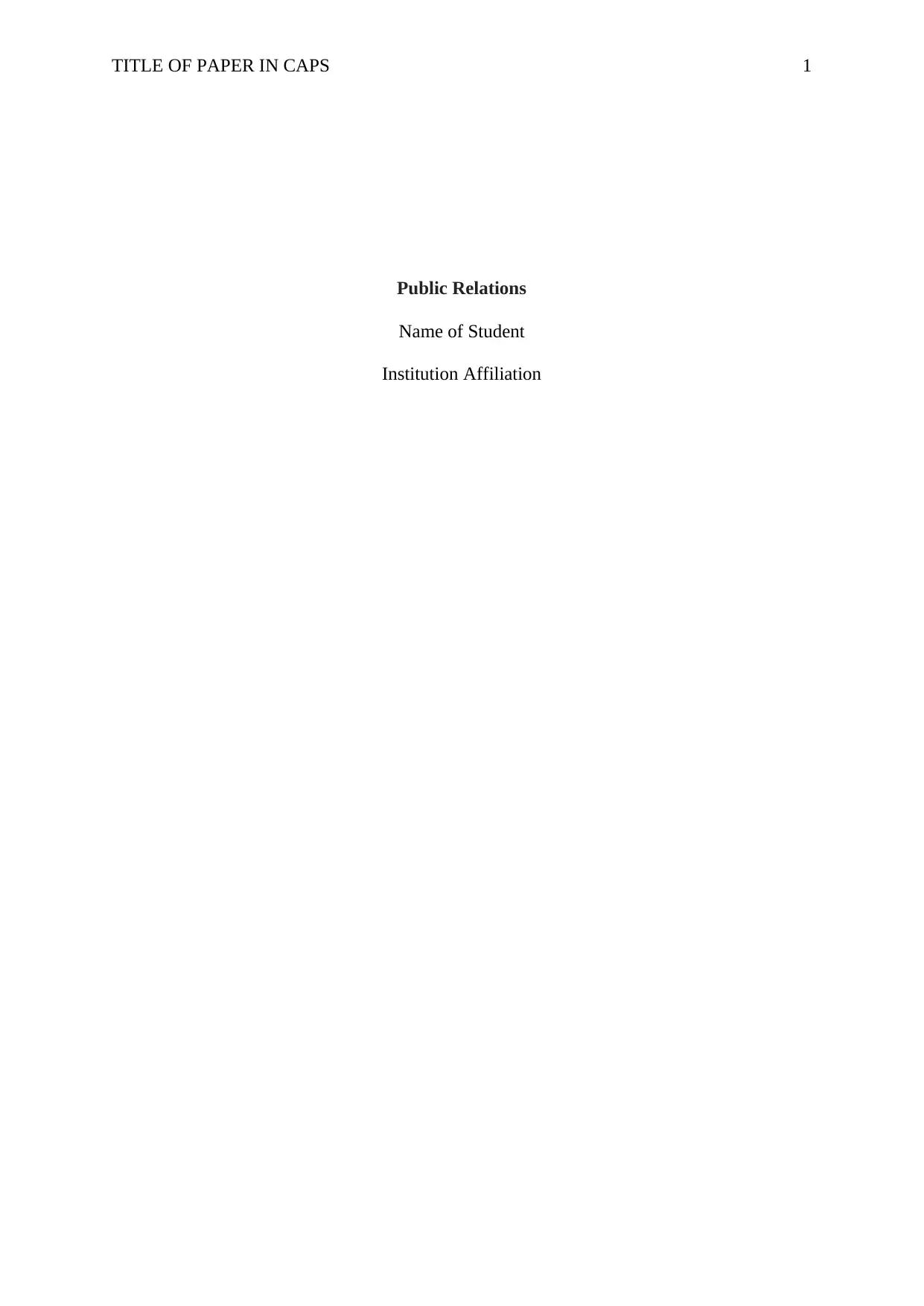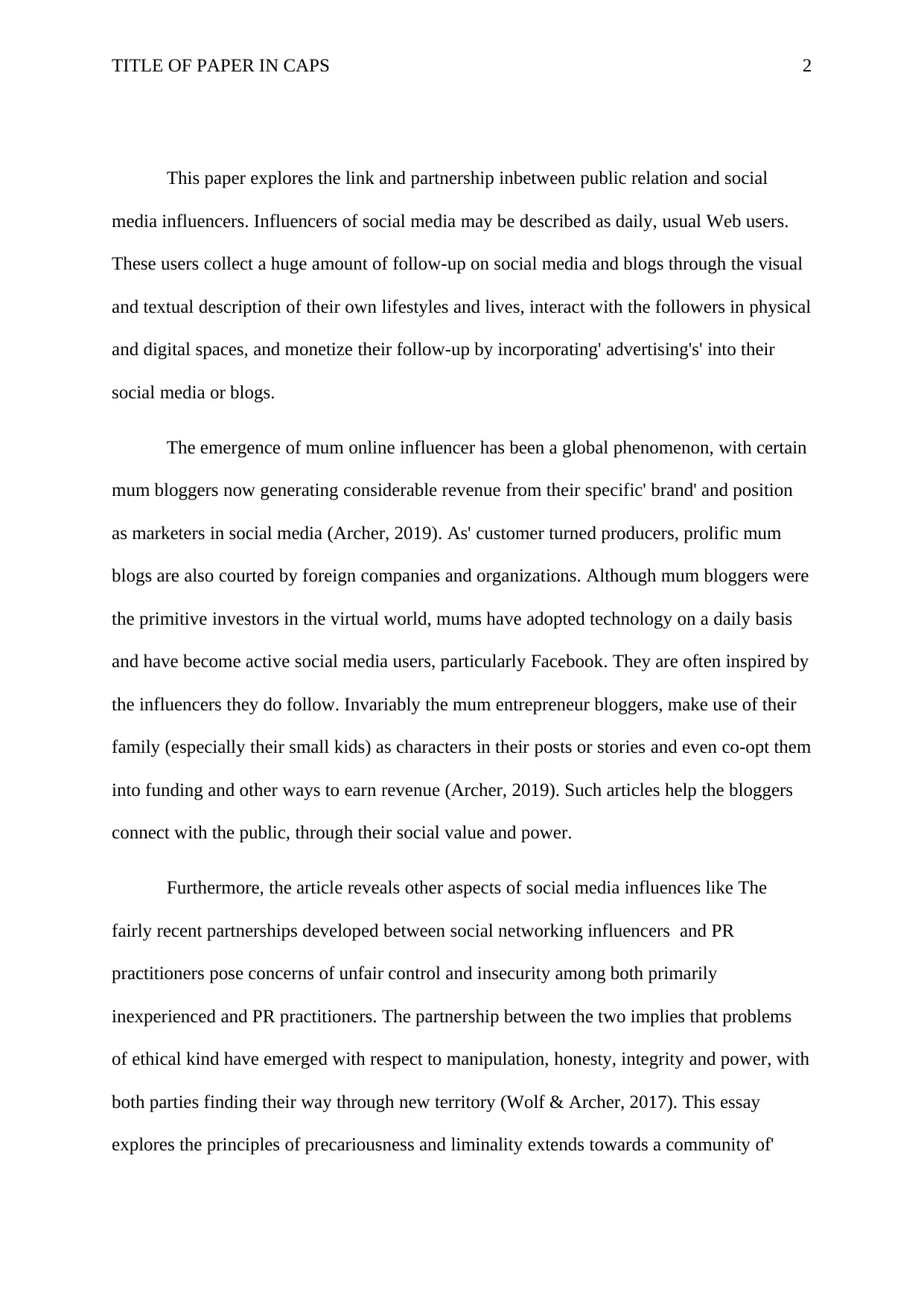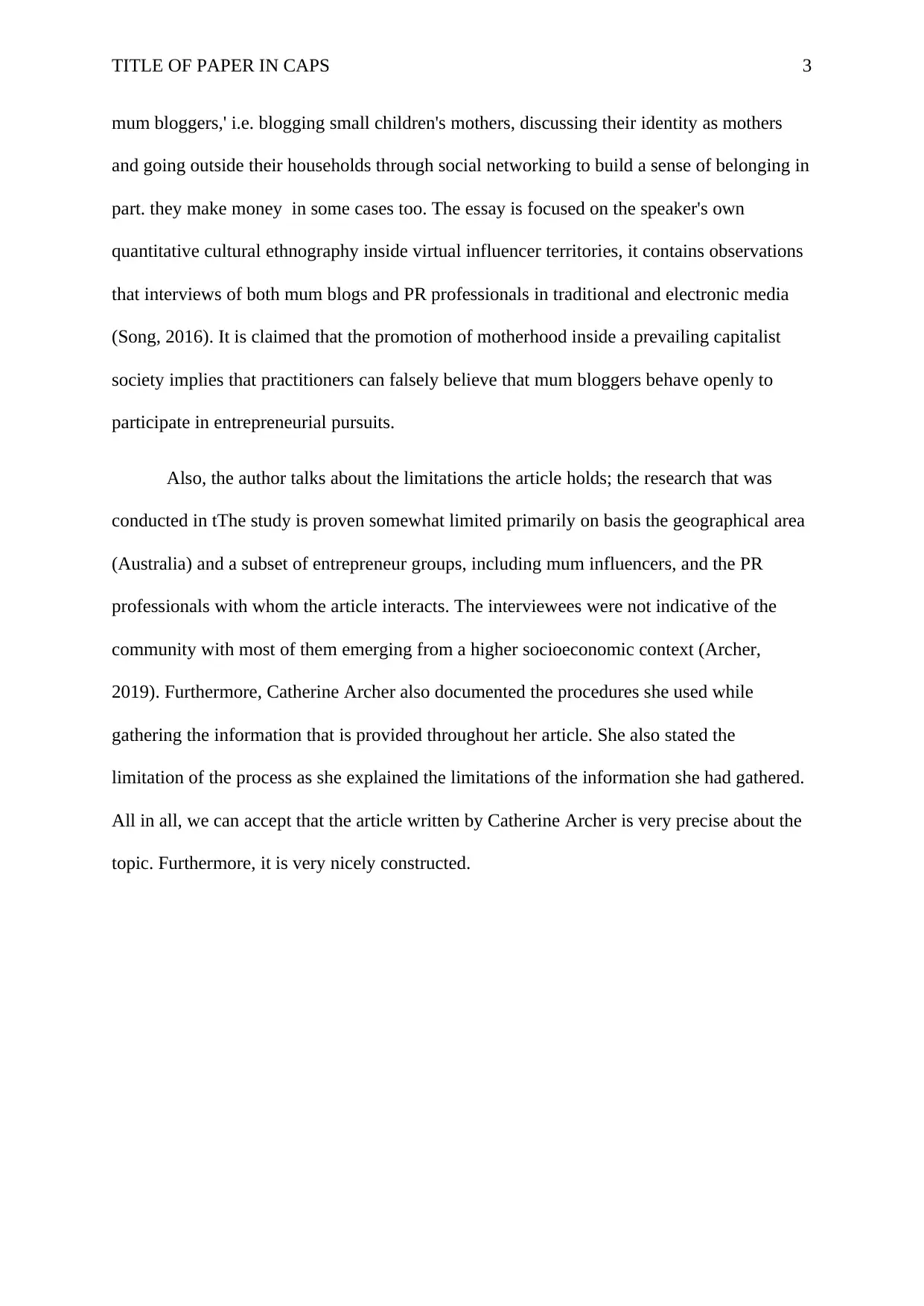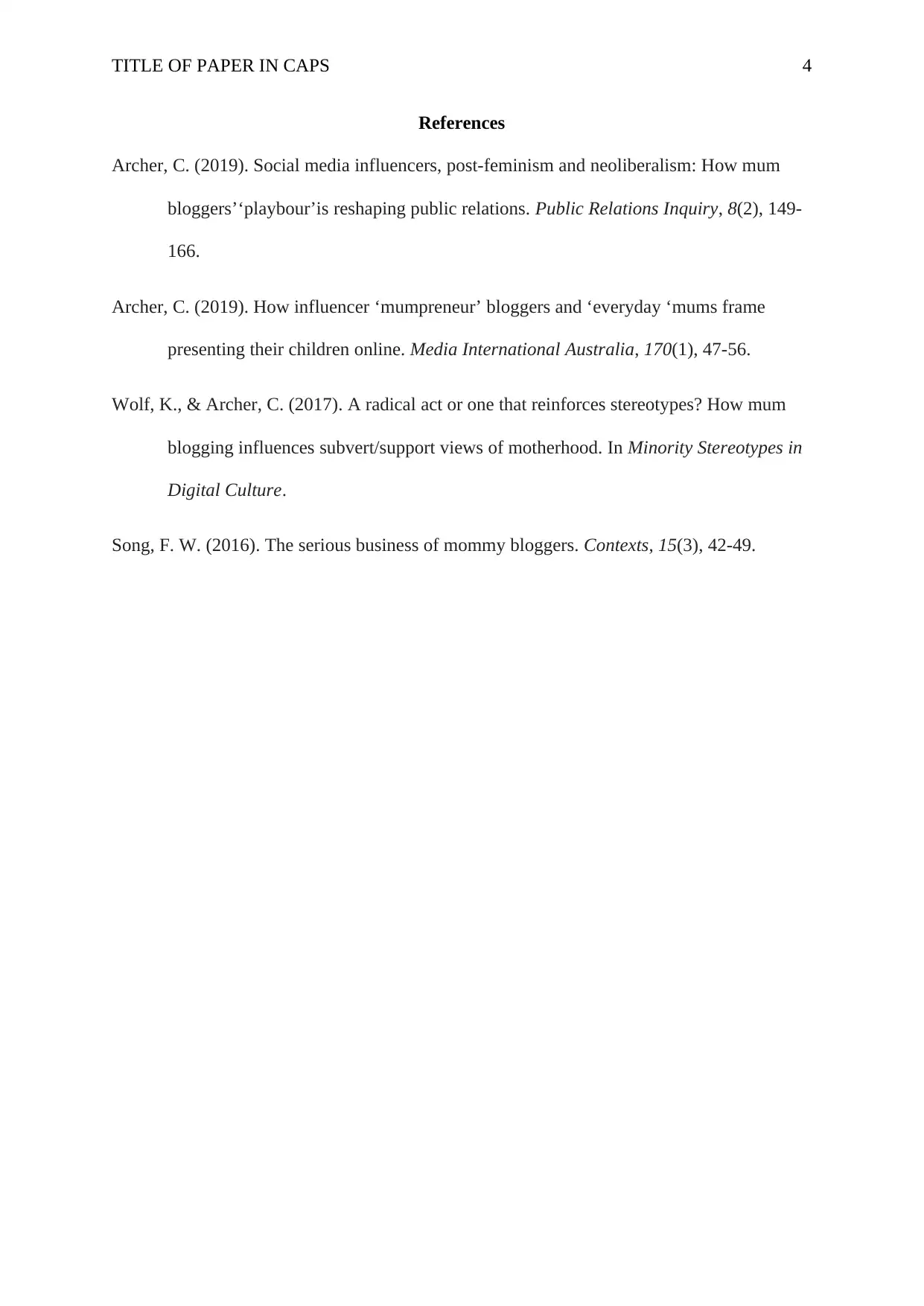Public Relations and Social Media Influencers: A Critical Analysis
VerifiedAdded on 2022/08/22
|4
|749
|21
Report
AI Summary
This report delves into the intersection of public relations and social media influencers, particularly focusing on the rise of 'mum bloggers' and their impact on marketing and public perception. The analysis explores the dynamics of their partnership, highlighting the ethical considerations, power imbalances, and vulnerabilities inherent in these relationships. It examines how influencers, often seen as 'precariat workers,' leverage their online presence to monetize their influence, and the strategies PR practitioners employ to engage with them. The report also discusses the limitations of the research, including geographical constraints and the socioeconomic backgrounds of the participants. The report is based on Catherine Archer's research paper which examines the ethical questions around exploitation, authenticity, professionalism and control that have arisen, with both sides feeling their way in new terrain.
1 out of 4





![[object Object]](/_next/static/media/star-bottom.7253800d.svg)